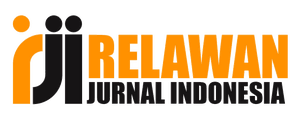Plagiarism Policy
JAMU: Jurnal Abdi Masyarakat UMUS is committed to upholding the highest standards of academic integrity and originality. Plagiarism in any form is a serious violation of ethical publishing practices and is strictly prohibited. We have a stringent Plagiarism Policy in place to detect and address any instances of plagiarism in the submitted manuscripts.
Definition of Plagiarism:
Plagiarism is the act of presenting someone else's work, ideas, or intellectual property, including text, figures, tables, or images, as one's own without proper attribution or permission. This includes, but is not limited to, copying and pasting from published sources or unpublished works, paraphrasing without appropriate citation, and self-plagiarism (duplicating one's own previously published work without proper acknowledgment).
Plagiarism Detection:
To ensure the originality of the submitted manuscripts, JAMU: Jurnal Abdi Masyarakat UMUS employs plagiarism detection tools to screen all submissions. Our editorial team, along with the assistance of these tools, thoroughly checks the content to identify any potential instances of plagiarism.
Consequences of Plagiarism:
If plagiarism is detected in a submitted manuscript, the following actions may be taken:
1. Rejection: The manuscript may be rejected outright if plagiarism is found in a substantial portion of the content.
2. Revision Request: If the plagiarism is deemed minor or unintentional, the authors will be asked to revise the manuscript and provide proper citations and attributions.
3. Author's Clarification: Authors may be asked to clarify and explain any potential issues related to similarity or overlap with other works.
4. Retraction: If plagiarism is discovered after publication, the article may be retracted from the journal, and an official retraction notice will be issued.
Self-Plagiarism Policy:
Authors should ensure that they properly cite their own previously published work and avoid redundant publication. Reusing substantial portions of one's own work without appropriate citation is considered self-plagiarism and is not permitted.
Attribution and Citation:
Authors are responsible for appropriately citing and acknowledging the work of others, including their own previously published work. Proper attribution is essential for maintaining academic integrity.
Responsibility of Authors and Reviewers:
Authors are required to conduct a thorough check for plagiarism before submitting their manuscripts. Reviewers are also encouraged to report any suspicion of plagiarism during the peer review process.
Appeals Process:
If authors disagree with the plagiarism assessment, they can submit an appeal to the editorial team, providing a detailed explanation and evidence supporting their claim.
JAMU: Jurnal Abdi Masyarakat UMUS is committed to promoting original and innovative research and upholding the highest standards of ethical publishing. We encourage authors to adhere to our Plagiarism Policy and maintain the integrity of academic publishing.


